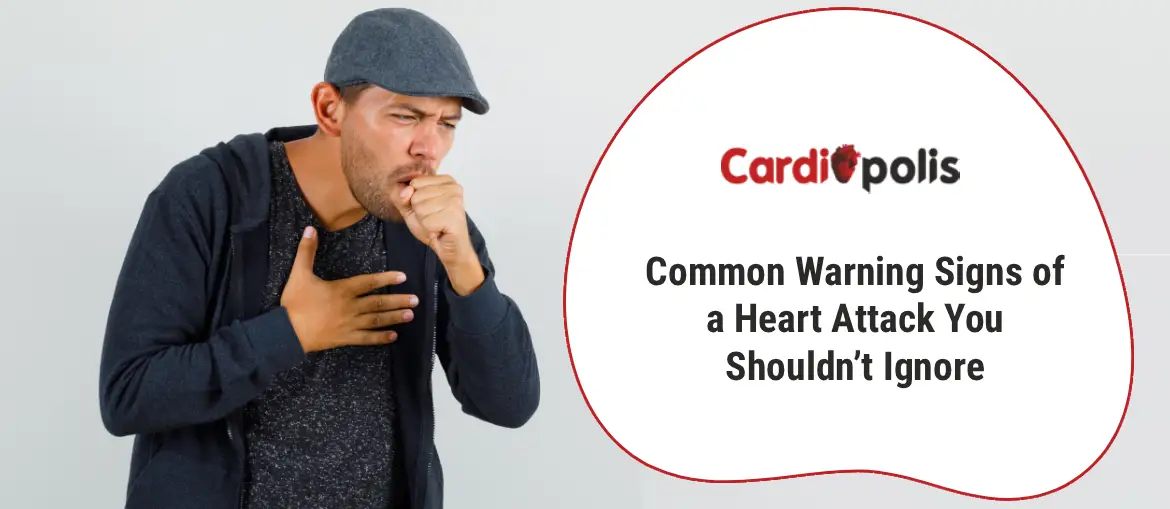Heart disease is one of the leading causes of global mortality, and heart complications can be the most terrifying in the form of a heart attack.
Many people confuse the symptoms of a heart attack with indigestion or fatigue, or stress, which can delay them seeking treatment, and put the person in danger. Knowledge of the typical signs is the key to life-saving.
Why is it important to Detect Symptoms Early
A heart attack occurs when a section of the heart muscle is starved of blood and cannot obtain it. Otherwise, the lack of oxygen is damaging to the heart muscle and leads to long-term complications or death without early treatment. Efficient medical care, e.g., the use of clot-busting drugs or surgeries to clear blocked arteries, will prevent any long-lasting damage.
Classic Warning Signs of a Heart Attack
The best-known effect of a heart attack is chest pain or discomfort. This can be referred to as pressure, squeezing, heaviness, or burning in the middle of the chest. It can take several minutes, disappear, and reappear. Not every heart attack, however, similarly manifests itself, and others can have discreet or uncharacteristic indicators.
Common symptoms are:
- Discomfort in the chest: Perception of tightness or fullness in the chest that is similar to a band around the chest. It may radiate to the upper body.
- Pain In Other Areas: The pain may radiate to the arms (most commonly the left arm), neck, jaw, back, or abdomen.
- Shortness of Breath: Breathing too rapidly, as if you can’t get enough air, even when you’re still resting.
- Cold Sweats: This is an abrupt sweating without exerting any physical activity.
- Nausea or Vomiting: It usually comes in conjunction with food poisoning or indigestion.
- Lightheadiness or Dizziness: A feeling of weakness or unnatural weakness.
Symptoms in Women and Older Adults
It should be noted that symptoms change according to gender and age. An example of this is that women tend to report shortness of breath, nausea, or jaw pain as opposed to crushing chest pain. Without experiencing clear chest discomfort, elderly people can experience excessive tiredness. These disparities contribute to many heart attacks not being diagnosed or missed in women and the elderly due to anxiety, flu, and digestive issues.
When to Seek Emergency Help?
If you or a loved one has symptoms that could represent a heart attack, don’t wait to see if they go away. Every minute counts. When one is waiting to be assisted, it is recommended to sit or lie down, relax, and allow the heart to rest more. Aspirin can be taken to help prevent clots, although only when prescribed by the health care provider.
Reducing Your Risk of Heart Attack
Living a heart-healthy life lowers your chances of having a heart attack, but there are risk factors you can’t control, such as your age or family history.
Key steps include:
- Eating a balanced diet, high in fruits, vegetables, whole grains, and lean proteins.
- Maintaining a consistent workout routine with a target of 150 minutes of moderate exercise per week.
- Dealing with stress through mindfulness, relaxation methods, or hobbies.
- This means no smoking, minimum alcohol consumption.
- Maintaining blood pressure, cholesterol, and blood sugar by regularly checking.
A heart attack can be unexpected and deadly, but an early recognition of the threat, followed by a timely response, can make the difference between life and death. None of the symptoms should be ignored, especially if you are at high risk due to age, lifestyle, or medical history. Use your gut feelings; when your heart is telling you it is not okay, it is always better to make an immediate visit to the doctor.
